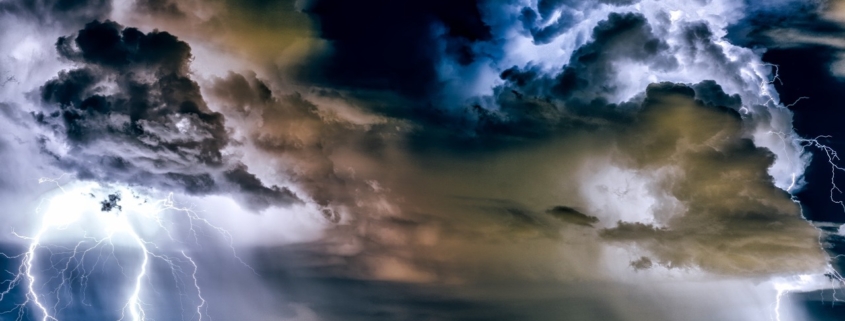Stormy Weather
by Mark Turner
In five short days, our friends and colleagues at the Kitchener Waterloo Symphony (KWS) went from canceling a season to filing for bankruptcy and ceasing operations. And only a few weeks ago, ArtSpace in Toronto announced it was heading in the same direction.
At the onset of the pandemic, arts leaders were hearing the early forecasting of doom. I remember sitting on a Zoom call (one of hundreds) about how to weather this storm; on that call, an economist talked about the reality that getting organizations to survive the pandemic was only the beginning of the challenges ahead.
Admittedly, there was a great deal of initial enthusiasm – orchestras, I’m sure most arts organizations, set about to embrace major innovation. It was scary but a bit electrifying to experience a new frontier for what orchestras could do when our planned work was thrown out the window. There was online programming, zoom classes, new ideas and first-time conversations that had long seemed unimaginable in our industries. But, when push came to shove, the arts adapted. We focused on survival.
And when the lockdowns ended, and people could come back to the hall, we couldn’t wait to see them. But the vast majority of audiences didn’t come back right away. Arts researchers and data analysts will tell you that, even now, 20-30% of pre-pandemic audiences haven’t returned.
Depleting audiences would be one thing, but remember, this is a perfect storm. Inflation has been devastating; the skyrocketing costs of travel alone have been unbearable for organizations that regularly have artists in need of travel. Economic impacts make it even harder for audiences to come back, even if they need music and art in their lives.
And the thing about survival is that it eventually wears you out.
Like all industries, it was a case of surviving a constant daily malignant stressor, that even once it seemed like the worst was over, it was still affecting us daily. Before the pandemic, I can tell you that there were many leaders in the arts who were burning out; add that to a labour shortage of individuals who want to take on leadership roles in arts organizations, and the storm simply intensifies.
And as these companies face the challenges of sales, cashflow, burnout, and inflation, treading water brings things closer to the brink.
Long before we had to socially distance, grant supports were not keeping pace with financial realities faced by organizations. While we’re expected to engage as broad an audience as possible, those of us in leadership roles also feel the heavy responsibility for those inside the organization. The musicians, the artists, the staff, and the volunteers…on sleepless nights trying to solve the problems, you’re more worried about those inside the organization than those it serves. You find yourself deeper into survival mode.
The time is here when we have to ask the challenging question of how much the arts mean to us. The value proposition should be, and maybe even is, obvious to everyone. It’s a time for new models, new funding investment, and a renewed approach to understanding what it means to have musicians and artists being paid properly for their work in our communities, where they spend every day enriching our lives and improving the world around them.
I’m worried about the devastation of the musicians, artists, and staff this weekend when they should have been celebrating their opening night. I’m even more worried about how they’re once again faced with having to find more energy for the next round of survival mode.
I don’t know the specifics of how things played out for the KWS, and I don’t need to. I can appreciate the perfect storm and the organizational burnout that could lead to this. And the sad reality is that even pre-pandemic, most arts organizations in this country were a few bad months away from the tough decisions. Even the healthy ones.
The fragility of the arts ecosystem has been at a crisis level for years. And what’s being done?
It’s time to rally around the arts. Go to the play. Buy tickets to the concert. Make a donation to the organizations you love. And take your friends. Call your politicians; we need them to listen. We need to let go of the myth that struggle breeds creativity…you know what breeds creativity? Sustainable support.
News like this is painful and scary, but we owe it to everyone at the KWS to let this be a motivator for the stabilization of the arts across this country.


